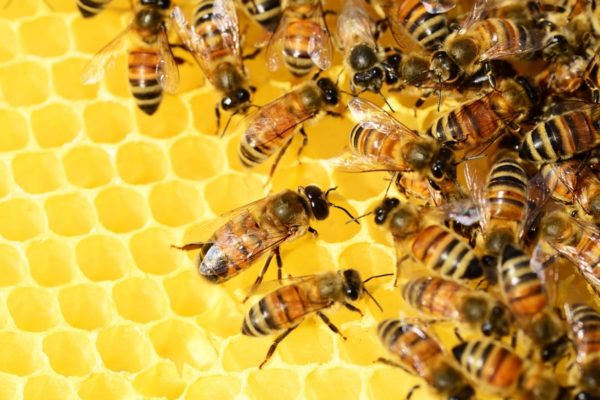In the winter of 2004/05, many beekeepers across America went to check on their honeybee hives and were shocked to find most of the adult bees had vanished, leaving behind the queen and immature bees. Millions of bees mysteriously disappeared, leaving farms with fewer pollinators for crops.
Colony collapse disorder, as it was later dubbed, has continued to vex beekeepers year after year — and there’s still no effective solution. Explanations for the phenomenon have included exposure to pesticides, habitat loss and bacterial infections. But now, a new study from The University of Texas at Austin suggests that antibiotics could play a role.
Researchers found that honeybees treated with a common antibiotic were half as likely to survive the week after treatment as a group of untreated bees. The antibiotics cleared out beneficial gut bacteria in the bees, making way for a harmful pathogen, which also occurs in humans, to get a foothold. The research is the latest discovery to indicate overuse of antibiotics can sometimes make living things, including people, sicker.
Vanishing bees is cause for concern because many of our most cherished food crops are pollinated by honeybees including almonds, apples, avocados, blueberries, carrots, cranberries, onions, squash, and watermelon. And that’s not to mention honey itself.
In large-scale U.S. agriculture, beekeepers typically apply antibiotics to their hives several times a year. The strategy aims to prevent bacterial infections that can lead to a widespread and destructive disease that afflicts bee larvae, called foulbrood.
“Our study suggests that perturbing the gut microbiome of honeybees is a factor, perhaps one of many, that could make them more susceptible to declining and to the colony collapsing. Antibiotics may have been an underappreciated factor in colony collapse.”
–Nancy Moran, professor of integrative biology at UT Austin and co-author of the study published March 14 in the journal PLOS Biology.
To learn more, read the press release: “Overuse of Antibiotics Brings Risks for Bees — and for Us”




